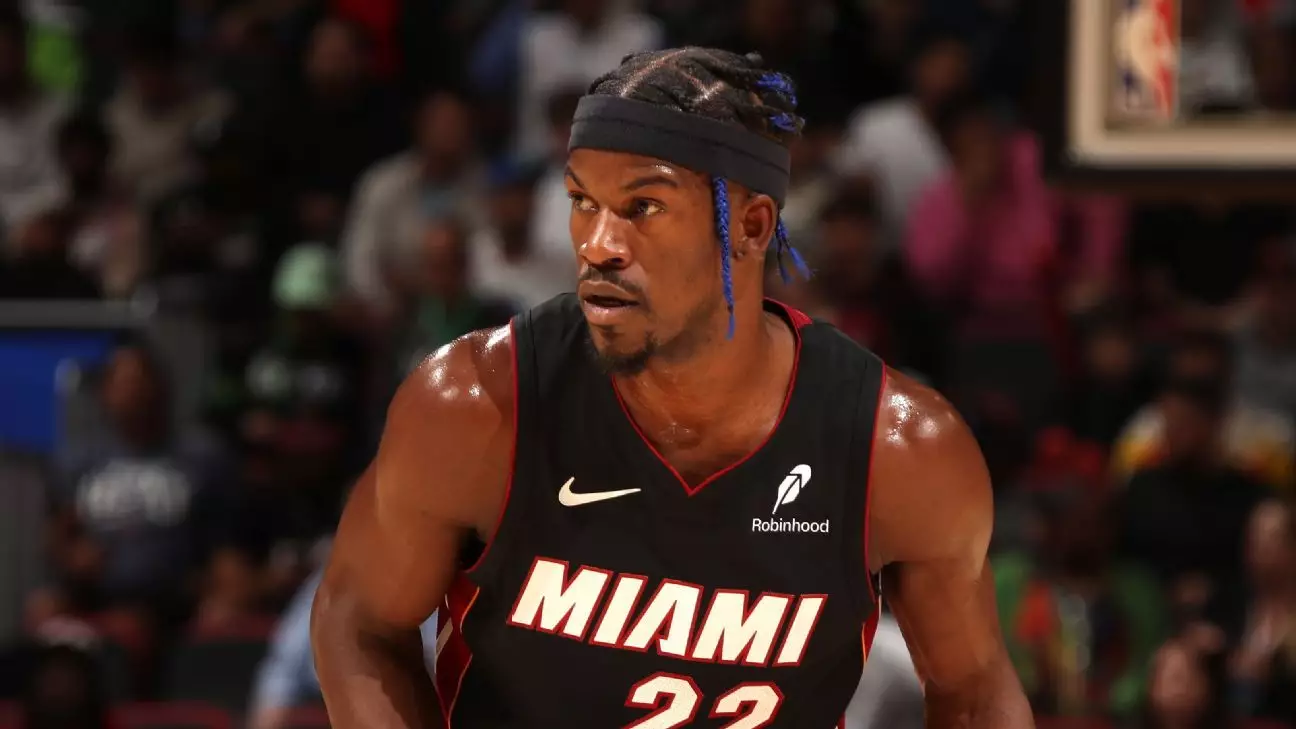The Miami Heat franchise is currently grappling with a crisis as they publicly suspend star guard Jimmy Butler for a staggering seven games, citing “multiple instances of conduct detrimental to the team.” This decision comes on the heels of an uncharacteristic performance by Butler, where he mustered just nine points in a disappointing loss to the Indiana Pacers. The situation is deeply concerning, both for Butler’s personal state and the team dynamics as they navigate a complicated crossroads.
In a revealing statement post-game, Butler expressed a worrying sentiment: he felt he had lost joy in playing basketball in Miami. “I want to see me getting my joy back playing basketball,” he stated. This confession not only highlights his dissatisfaction but also raises questions about his future with the Heat. Butler’s acknowledgment of his struggles on the court is resonant with fans and analysts alike, underscoring a disconnect that his performance has been unable to mask.
In a surprising maneuver, Butler or his representatives indicated a desire to be traded, prompting the Heat management to entertain offers. The Heat’s official statement remarked, “Through his actions and statements, he has shown he no longer wants to be part of this team.” This kind of turbulence seldom occurs with star players, yet it raises a broader discussion on athlete loyalty versus the essential need for personal and professional fulfillment.
The implications of Butler’s actions are profound—not only for him but also for the Heat’s future trajectory. As tensions rise, the question of whether the franchise can mend the relationship with Butler hangs heavily in the air. The organization finds itself in a precarious position, caught between a star athlete’s personal decline and the operational integrity of the team.
Financial Consequences and Players’ Association Intervention
The financial fallout from Butler’s suspension is significant, with each missed game costing him a painful $336,543, leading to a total of roughly $2.35 million for the duration of his seven-game ban. Furthermore, the National Basketball Players Association (NBPA) plans to file a grievance over the suspension, potentially complicating the process of reestablishing Butler’s relationship with the team. This grievance could take time to resolve, which adds another layer of uncertainty.
Jimmy Butler’s situation with the Miami Heat is emblematic of a broader narrative in professional sports: the tension between individual desires and organizational goals. As the season progresses, both parties must consider what’s at stake, especially with Butler having a player option worth more than $52 million next season. Will the Heat manage to keep their star player on board and rejuvenate his passion for the game, or will Butler depart to find the satisfaction he desperately seeks elsewhere? The coming months will undoubtedly dictate not only the fate of Butler’s career but also the future of the Miami Heat as a competitive franchise in the NBA.

